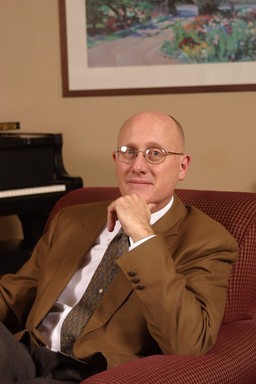Conservative literary group studies great minds

Courtesy Photo / gvsu.edu Ben Lockerd
Nov 18, 2010
The Spes Bona Society meets around a small table near the Starbucks in the DeVos building of the downtown campus every Monday at 7:30 p.m. to “discuss the big questions.”
“Spes Bona” is Latin, and roughly translated it means “good hope.” The organization is an academic group of about a dozen students dedicated to the quest for freedom and order in the university by reading and discussing conservative literature. Notable authors include T.S. Eliot, C.S. Lewis and Russell Kirk.
Rather than reduce everything to hot-button issues such as abortion or stem cell research, Spes Bona uses the literature from greater minds to take a step back from the immediate issues of today and look at the deeper foundations of things. The ideas of how a culture remains healthy, how cultures pass values from one generation to the next, how a nation governs its people and how a people governs itself are big questions that do not have easy answers. Spes Bona recognizes the difficulty of the questions and seeks the answers through literature.
The society formed after the 2008 election in reaction to the fanfare and backroom talk about the death of modern conservatism in the historic event.
“The election of President Obama stimulated us to think about a serious kind of intellectual conservatism that might answer some of the ideas on the left,” said faculty advisor and English professor Ben Lockerd. “These students did not just want to be part of knee-jerk right wing reaction, but they wanted to think more deeply about human culture and economics and government.”
Lockerd said Michigan author Russell Kirk provided an inspirational viewpoint on what could be labeled the modern intellectual conservative movement, and his 1953 book, “The Conservative Mind,” is an important tome in the history of conservative thinkers of the last 200 years.
“That book had a great influence because it sought to find a thoughtful, principled kind of conservatism that wasn’t just a mouthpiece for big business,” Lockerd said.
He and many members of the society consider Kirk to be a big influence on their thinking.
“Russell Kirk used to say that a good, thoughtful conservative is one who recognizes that there is always a need for change,” Lockerd said. “And a good, thoughtful liberal is one who recognizes the need to conserve the values of the past.”
The group has started reading Reappraising the Right, a book by the conservative historian George Nash. Lockerd said Nash wrote his book in response to movement away from conservatism after the 2008 election.
“This book was published just last year in the wake of the Democratic victories in 2008 when many people were saying the conservative movement is dead,” Lockerd said. “Of course it’s never quite that simple as our recent elections have shown, but it still it was a turning point in some ways.”
Lockerd said Nash’s book addresses the possibilities of conservative thought and principle today. Spes Bona applies these ideas in its discussions, which range from pop culture to the philosophical. He said through their loose affiliation with the Intercollegiate Studies Institute, an organization that fosters discussion of political and economic issues on college campuses, Spes Bona hopes to bring Nash to speak at GVSU.
Lockerd said ISI acts as a regulator to balance the field in the discussion of issues based on the assumption of collegiate institutions being dominated by liberal ideas.
“Of course we’re in a relatively conservative region of the country,” he said. “I would say that Grand Valley is a relatively conservative school. It’s not as totally overrun with liberalism as some other schools are.”
Lockerd recalled a faculty meeting of the Department of English years ago at which a colleague said, “Well, I assume we’re all liberals here.”
Lockerd said that assumption is found in many departments on campus.
“It’s a matter of fact that our Board (of Trustees) is now fairly liberal or leans to the left,” he said. “That’s the spoils of politics. Under Governor (John) Engler, board members were appointed who leaned to the right. So that’s the way it goes.”
In her personal experience, Society President and recent inductee to the English Honors Society Maureen Divirgilio said she hasn’t encountered many places at the university where she could engage in elevated and mature discussions that don’t devolve into heated, empty ideological clashes.
“When I first joined the group, which was as one of its inaugural members, I wasn’t sure how it would go,” she said. “I think of myself as being politically and economically conservative, but not socially so. I was definitely eager to have a forum for open discussion; I wanted to have my beliefs challenged but I also wanted an opportunity to strengthen them, and contrary to popular conception I think the two go hand in hand.”

























